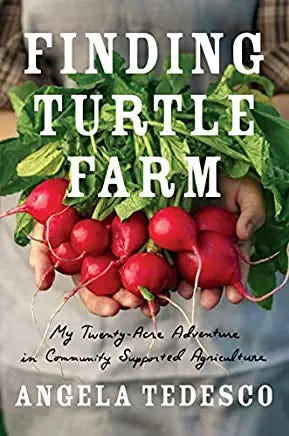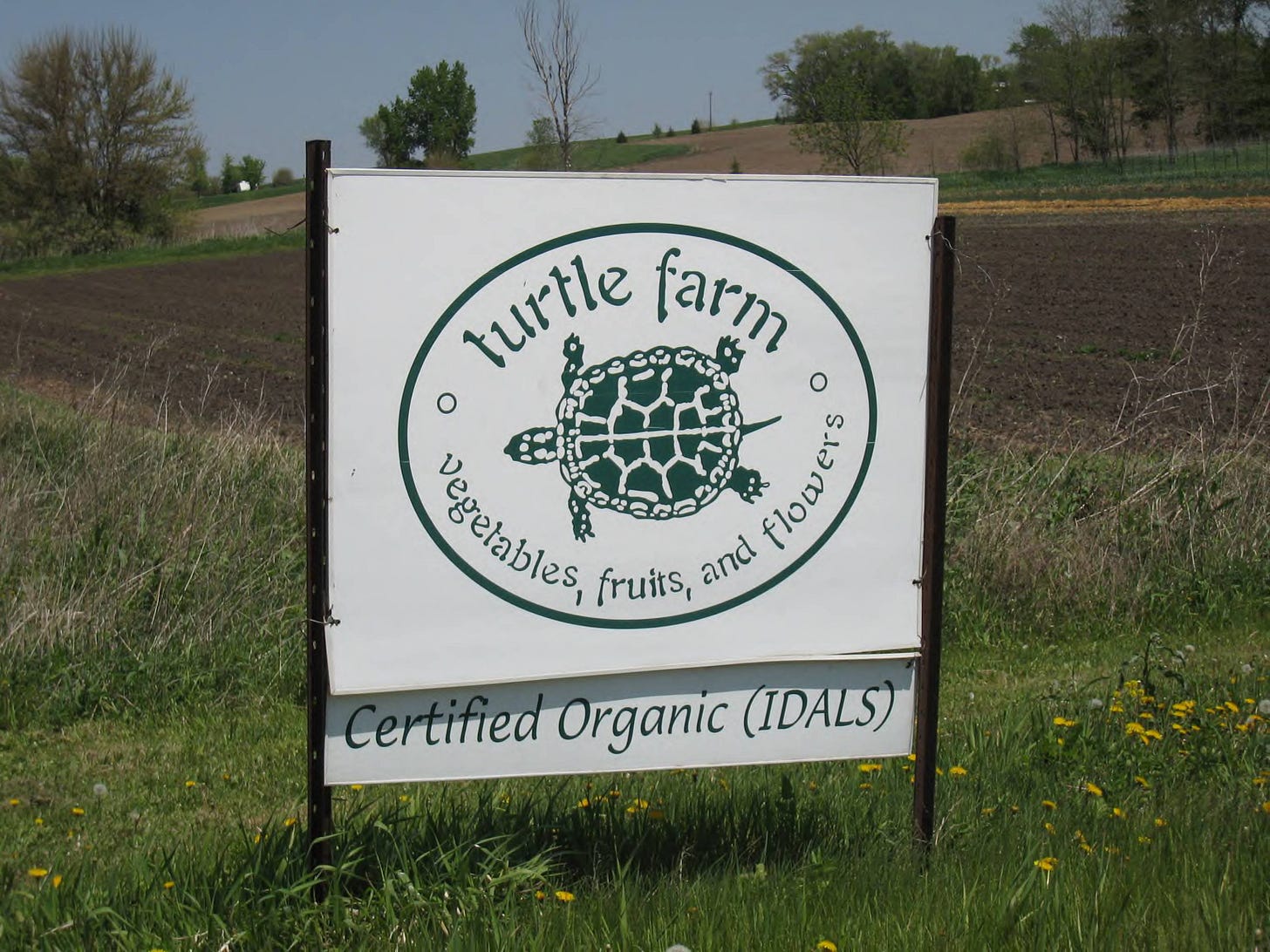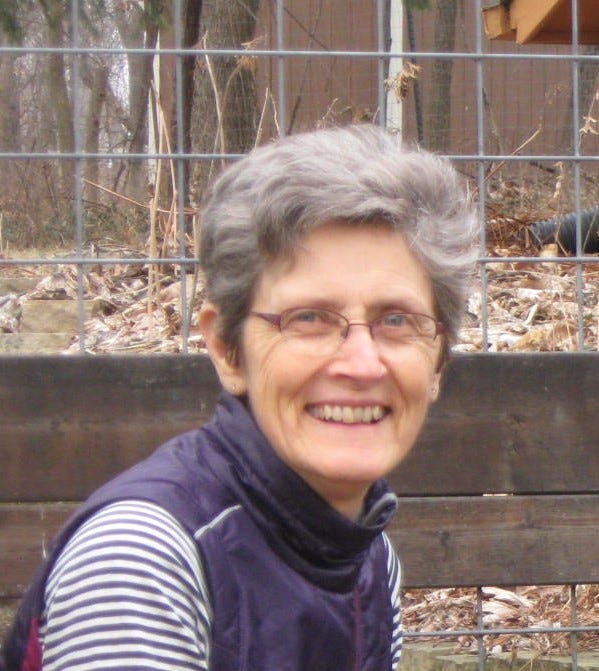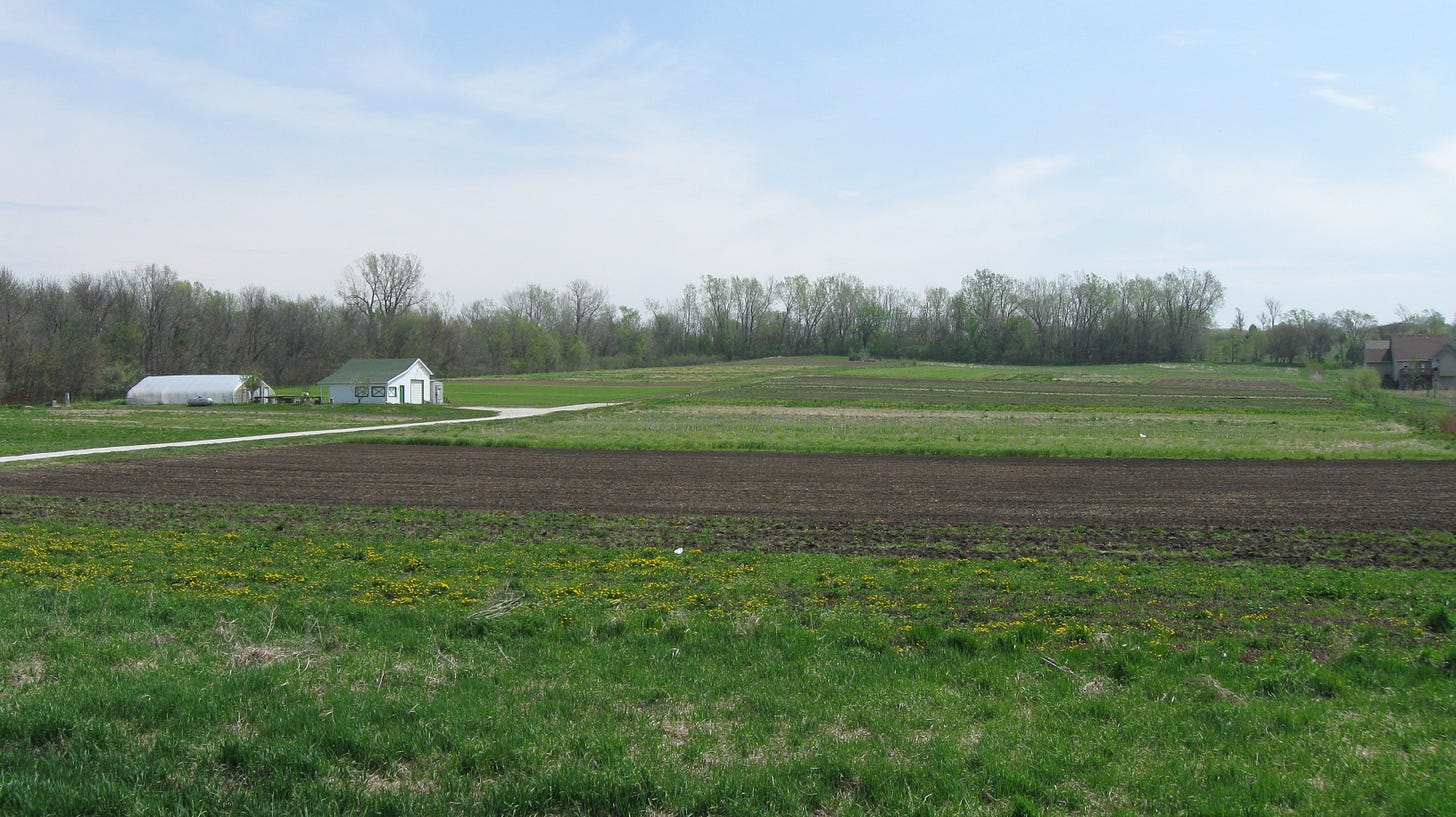Finding Turtle Farm
Angela Tedesco's Twenty Acre Adventure in Community Supported Agriculture
Angela Tedesco dared to say the “o” word. Tedesco, author of the new book Finding Turtle Farm: My Twenty-Acre Adventure in Community Supported Agriculture (U. of MN Press), missed the taste of vegetables from her childhood garden and felt that conventional vegetables just didn’t measure up to the fresh-picked, non-chemicalized produce she’d known long ago.
In the 1990s, her horticulture professors at Iowa State University pulled her aside and warned her against exploring organic vegetable farming. Organic farming was only for the lunatic fringe of the agricultural world. A hippy-dippy leftover from the 1960s back-to-land movement that flew in the face of the modern industrial model.
Yet Tedesco had made a trip to an organic farming conference at the Sinsinawa Mound Center in Wisconsin, returning home with recordings she’d purchased about Community Supported Agriculture. This concept went beyond the pages of her Organic Gardening Magazine. In a Community Supported Agriculture system, or CSA, customers paid a farmer in advance for the vegetables that they would receive throughout the growing season.
The cash helped the farmer pay for seed, tools and labor each spring, alleviating some of the risks of weather and pests. The customers came to the farm, learned how their food was grown, and interacted with their farmer, forming a mutual bond. Encouraged to eat in season, the customers received weekly boxes of food. The customers invested in the local food system and the local economy.
Angela Tedesco: I was immediately taken by the recordings on Community Supported Agriculture because of the co-operative method of providing food for people. You do it by way of relationships between you and your customer. The customers support you financially by paying upfront for their food. I support them with the food, but the third party in the formula is the earth, all the creatures, all the communities of microbes in the soil, the insects, the birds, all the animals there were a part of making it a success, too. I thought of it as a big triangle. In Community Supported Agriculture, we were all supporting each other.
With her master’s degree in horticulture tucked under her arm, Tedesco set out to look for a piece of land where she could start one of the first CSAs in the state. Her husband had a good job that provided health insurance, but essentially Angela Tedesco was on her own, a sole woman setting up a farming enterprise. After a long search, she purchased 20 acres of conventional farmland near Des Moines, beginning the three-year transition period to organic vegetable production.
Angela Tedesco and her employee Ben Saunders gradually began to see her land change, from compact, lifeless dirt to lush topsoil teeming with earthworms and micro-organisms. Angela and Ben found creative ways to handle everything from bullsnakes to tomato hornworms. They grew an abundance of food. They taught educational classes, supervised interns, conducted research, and addressed all the small emergencies that arose on the farm.
Then a large emergency hit Angela. She received a diagnosis of breast cancer and soon found herself on a fast train ride through the medical system.
Angela Tedesco: When you hear the big “C” word, you realize how much you don’t know about it, what you would do about it. My father had had cancer many years before, and back then there wasn’t much treatment. So, you trust the doctors are going to give you all the information you need, and part of that was surgery to remove the lump. And then, the next thing they wanted me to do was go to radiation therapy. I just say I’m on that train at the next stop. And as I’m finishing that they send you to the oncologist for chemotherapy and it’s like, wait . . .I’m an organic farmer, I don’t want to put these chemicals in my body.
So, Tedesco went to California to see a naturapath. The treatment was helpful. Her body healed. Her business thrived. The therapy gave her the courage to step off the train and use alternative treatments for other health issues. Eventually, it led her to compare conventional agriculture to conventional health care systems.
Angela Tedesco: People in both of those systems want fast results whether it’s a bug spray or a pill to pop. Organic agricultural and functional medicine both look at the symptoms and say, “Well, let’s get to the root of this, then decide what we’re going to do.”
Finally, after seventeen years, Tedesco decided she was ready to step away from farming. She donated her land to Practical Farmers of Iowa. ISU still isn’t enthusiastic about embracing anything but conventional agriculture, but Angela is a pioneer, a heroine to many, and her past professors now use her as a shining example of what a small vegetable farmer can do.
Listen to a full interview of Angela Tedesco on the “AgArts from Horse & Buggy Land” podcast. Episode #38. http://www.agarts.org/podcast/
Support the Iowa Writers Collaborative. You can subscribe for free, or if you can, please support us with cash. Contributions to my page go to AgArts and its work creating artist residencies on farms. Many thanks to Julie Gammack for pulling this group together, and to Kathie Obradovich for featuring many of these Substack posts in The Iowa Capital Dispatch.
Here we are, in alphabetical order.
Laura Belin: Iowa Politics with Laura Belin
Doug Burns: The Iowa Mercury
Art Cullen: Art Cullen’s Notebook
Julie Gammack: Julie Gammack’s Iowa Potluck
Beth Hoffman: In the Dirt
Dana James: New Black Iowa
Bob Leonard: Deep Midwest: Politics and Culture
Chuck Offenburger: Iowa Boy Chuck Offenburger
Mary Swander: Mary Swander’s Buggy Land
Ed Tibbetts: Along the Mississippi
And here’s the Iowa Writers Collaborative






